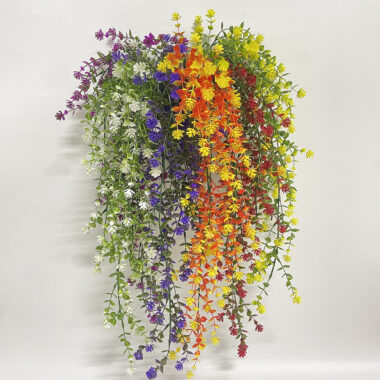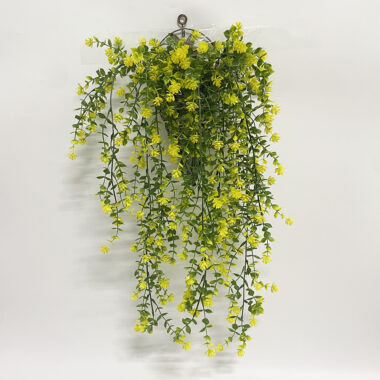🌸 Introduction
Artificial flowers are no longer seen as simple decorative items. Today, they represent a thriving global industry that serves weddings, retail chains, hospitality, events, and even interior designers. Brands across the world rely on artificial flower suppliers to deliver consistent quality, innovative designs, and reliable logistics. But with so many options on the market, how do you identify the right partner? Choosing the right artificial flower supplier is a crucial decision that impacts your brand’s image, cost efficiency, and long-term growth.
This guide explores the essential factors you should consider—from customization capabilities to factory reliability—when evaluating potential suppliers.
🏭 1. Understand the Supplier vs. Factory Difference
One of the first questions to ask is whether your potential partner is a true artificial flower factory or simply a trading company. Factories handle the design, production, and quality control directly, which often results in lower costs and better customization opportunities. Trading companies, on the other hand, may add layers of communication and cost.
Working with a genuine artificial flower manufacturer ensures you get transparent pricing, direct access to samples, and faster lead times. If your brand values long-term stability and bulk production capacity, finding a supplier who operates their own factory is a major advantage.
🎨 2. Customization Capabilities Matter
In today’s market, differentiation is key. Brands do not want generic designs—they want artificial flowers that match their identity. The right supplier should offer custom artificial flowers in different colors, stem lengths, materials, and packaging.
For example, wedding brands often require pastel roses, while retail chains may demand bold hydrangeas or orchids. Ask whether the supplier can match Pantone colors, provide logo-branded packaging, and adjust bouquet styles. This level of flexibility reflects not only their technical skill but also their willingness to collaborate with you to bring unique designs to life.
📦 3. Wholesale Flexibility and MOQ Policies
Not every buyer wants to commit to massive orders right away. A reliable artificial flower supplier should provide flexible wholesale solutions. Look for suppliers who allow mixed SKUs, offer tiered pricing, and maintain low MOQs.
Such flexibility is especially valuable for small businesses or brands testing new product lines. It allows you to test the market without the financial strain of holding large amounts of inventory. As your business scales, these same suppliers can seamlessly grow with you, handling larger, bulk orders efficiently.
✅ 4. Quality Assurance and Sample Access
Quality is one of the top priorities for any buyer. Artificial flowers must look realistic, feel durable, and hold up under different uses. Leading factories implement strict QC systems at every production stage, from raw material inspection to final packaging.
Before committing to large orders, ask for samples. A professional supplier will be happy to provide them. Visiting a supplier’s sample room—or requesting a virtual tour—can give you a clear view of their product range and capabilities. Samples help confirm whether the factory can meet your standards for color accuracy, petal detail, and overall finish.
🌍 5. Logistics and Global Delivery
Even the best flowers lose value if they cannot be delivered reliably. A strong artificial flower factory should have experience in global exports. This includes handling export documents, packaging products securely, and offering multiple delivery methods—air freight, sea shipping, or express couriers.
It’s also important to consider after-sales support. A responsive supplier who answers inquiries quickly, shares updates, and provides clear timelines is far more valuable than a low-cost partner who communicates poorly. Global delivery is not just about shipping; it’s about building confidence.
🌺 6. Pricing Transparency and Long-Term Value
Price will always play a role, but the cheapest option is not always the best. Transparent pricing means knowing exactly what you’re paying for—materials, labor, packaging, and logistics. A good artificial flower supplier will provide clear quotations and avoid hidden costs.
Long-term value comes from balancing price with quality and service. Brands often discover that paying slightly more for a reliable factory partner reduces risks, lowers product returns, and strengthens their reputation in the market.
🤝 7. Building Trust and Partnership
Ultimately, the relationship between a brand and its artificial flower supplier should be seen as a partnership. Trust is built through consistent quality, open communication, and a shared commitment to growth. Suppliers who act like partners—not just vendors—will invest in your success by suggesting improvements, sharing new designs, and helping you expand your product range.
When you find a factory that values your business beyond the purchase order, you gain a strategic ally in the competitive artificial flower industry.
🌸 Conclusion
Selecting the right artificial flower supplier requires more than a quick search. It involves careful evaluation of their manufacturing capacity, customization options, wholesale flexibility, and commitment to quality. By working directly with a trusted artificial flower factory or manufacturer, your brand gains reliable products, consistent support, and long-term value.
In the end, it’s about more than flowers—it’s about finding a partner who understands your brand’s vision and helps it bloom in the global market.








